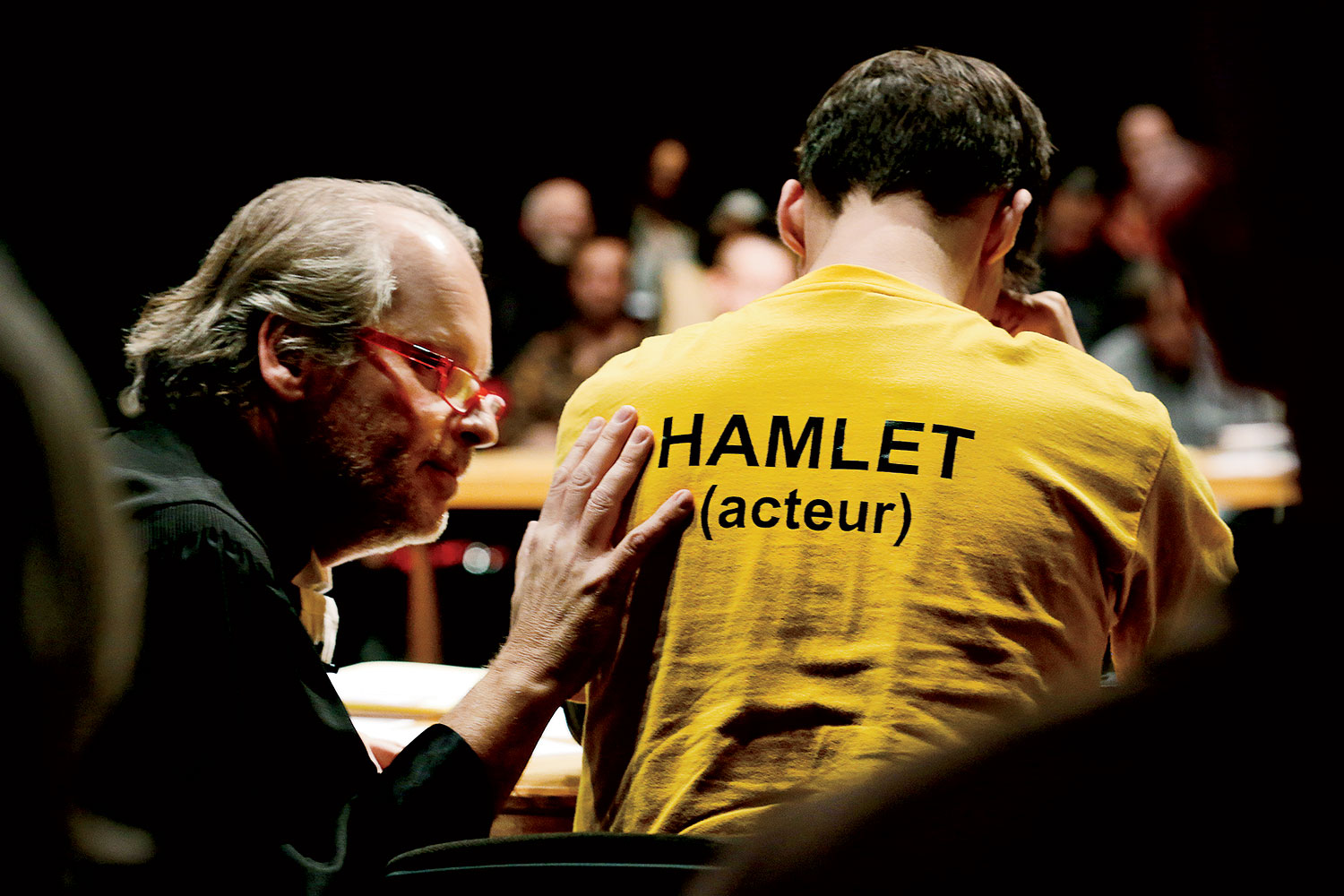Dutch artist Yan Duyvendak’s Please, Continue (Hamlet) takes a real-life case and transposes it onto Shakespeare’s drama, where the title character is tried for the murder of Polonius. Hamlet and witnesses Ophelia and Gertrude are played by actors. The judge, prosecutor, and defense attorney are recruited from the bar association of each city in which the play is produced. Instead of a script, they’re given a dossier of evidence, and they proceed as in a mock trial. Twelve audience members are chosen to determine the verdict. The play makes its U.S. premiere at the Museum of Contemporary Art Chicago (April 25 to 28) as part of the Chicago Humanities Festival. Here, CHF artistic director Alison Cuddy describes the tricky casting process.
How are you going about the process of locally recruiting the attorneys and judges?
For background, we’re doing this production in partnership with the Museum of Contemporary Art. They approached us, and I was really interested in it because it's so aligned with power — which is the theme that we’re exploring this year. Part of the reason the MCA wanted to work with us was the partnership, but also because we could probably help with thinking through the legal casting.
This is the first time Please, Continue (Hamlet) has been performed in the United States. It’s been produced in multiple places, and every time you have to adapt what they call the legal brief, which we would just call evidence, to the custom of the legal situation in which it’s being performed. So in our case, thinking about Cook County, this is a murder trial. In some countries, for instance, Ophelia also has counsel to represent her interest as a witness.
What did you look for in filling the local roles?
The legal-world participants are not asked to do a dramatic performance, just what they would always do as a judge or an attorney. We tried to get people who Chicagoans will be really excited to see onstage. Initially, I reached out to State’s Attorney Kim Foxx to circulate the opportunity in her office, but she ended up agreeing to participate. She’ll be the prosecutor on opening night.
And so nothing is really pre-scripted at all, right? Everyone is just given the evidence and then does their own work from there, as they would with any given case?
Yes, exactly. And the actors aren’t really given a script either. They do a rehearsal — they act out the sequence of events from the murder itself. And the idea behind that, according to Yan, is that when they’re recounting what happened in the courtroom, they have a memory of what happened not from actually having gone through those events, but having gone through a kind of staging of them. So that brings a layer of authenticity to their recollection of the event, if that makes sense.
It does. Are the actors playing Hamlet and Ophelia and Gertrude cast locally as well?
Yes. The difference between the legal team and the acting team is that the actors are cast for the entire run of the production, and the legal team will change every night. There will be a new judge, prosecutor, defense attorney, and jury.
Why does Hamlet work well in this courtroom framework?
Hamlet is a play that a significant number of people know even if they haven’t read it before. The figure of Hamlet transcends the play, right? It stands in for a modern kind of individual or a set of dilemmas that we might identify with.
Have you determined how the deliberation process is going to work for the audience members who are chosen? Obviously, you don’t want them deliberating as long as a real jury might.
There’s a typical intermission early on, and then at the conclusion of arguments the judge selects the jury from that night’s audience and then there’s a half-hour break. In that 30 minutes, that night’s jury deliberates and comes up with a verdict and then the judge determines the sentence.
But the jury doesn’t know that they’re the jury until after they’ve heard everything — which is different than the way it would normally go, where the jury would be a part of the trial. So that’s part of the theatrical element of it: Lots of suspense because you don’t know if you will be called upon to judge.



